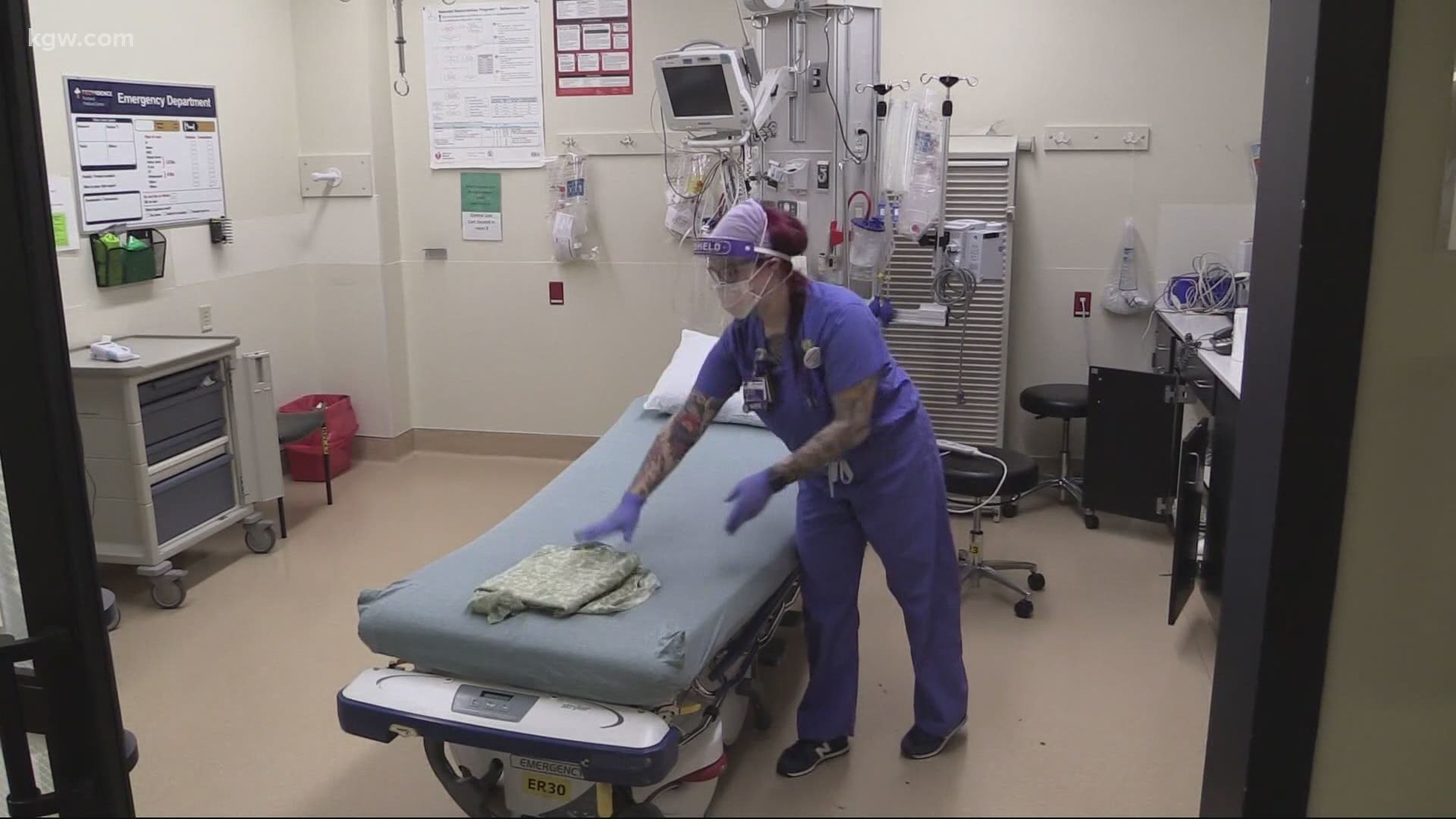PORTLAND, Ore. — Hospitals in the Portland metro area are now bearing the brunt of the state's COVID-19 surge, as coronavirus cases continue to rise along with sick patients needing serious treatment.
Providence Portland Medical Center was treating 82 COVID patients on Wednesday, amounting to one in four patients in the hospital, and big changes are happening to keep up.
Providence Portland said it is converting about 100 more beds for coronavirus patients. Four medical and surgical units are now dedicated to COVID-19, and non-urgent surgeries are being postponed to allow staff to shift to COVID care. Also, 39 more beds are in the planning stages to help, which includes critical care beds if needed.
Staffing continues to be the biggest challenge, according to Becky Hultberg, president and CEO of the Oregon Association of Hospitals and Health Systems.
“A hospital bed does you no good if you don't have the staff to take care of the patient in it,” said Hultberg, who added, “Staffing is constrained across the country so it's difficult to bring in staff from outside of state so we are really struggling to ensure that we have adequate staffing in all of our hospitals.”
In a Providence-wide email sent to staff, CEO Krista Farnham and other subordinates wrote, "Everything we have done in the past 9 months has prepared us for the coming weeks as we face an unprecedented surge of COVID-19 patients."
Providence is not alone in dealing with the crisis. Dr. Melinda Muller is interim chief medical officer of Legacy Health. Its hospitals were caring for 116 COVID patients today.
“Our volume has gone up over the past few weeks, definitely climbing as it is everywhere in other systems and across the state,” said Muller.
The bulk of the coronavirus patients were at Legacy Salmon Creek in Clark County, Wash., with Legacy Emanuel in Portland caring for the second-most. It too is cutting non-urgent surgeries and managing beds and staffing to make room for additional COVID patients.
“I'm really concerned about what's going to happen in two weeks after we see what happens after Thanksgiving," said Muller. "We're really concerned about how people are continuing to behave. We really want people to continue the masking, wash your hands, stay home; all the usual things.”

